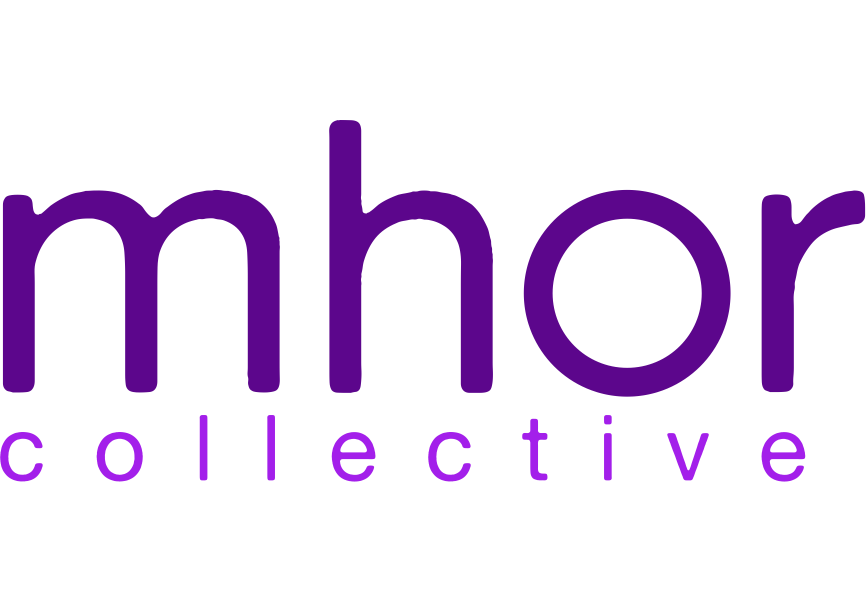Include+ Principles in Mental Health
From Paralysis to Agency : Aligning Mhor Collective’s Connecting to Care Project with the INCLUDE+ Principles
A trauma-informed, relationship-centred approach to meaningful digital inclusion
Digital inclusion should never be reduced to technical proficiency or device distribution. It’s so much more than that. It’s rooted in wider inequality and systemic injustices. It’s a symptom of this and a consequence, and digital is often an additional burden, an extra layer of hardship to contend with.
For individuals living with mental health challenges, exclusion is often tied to deeper histories of trauma, disempowerment, and stigma. Connecting to Care, developed by Mhor Collective in partnership with the incredible Discovery College (part of Centred), was rooted in the belief that digital inclusion must be relational, responsive, and restorative. Delivered through a drop-in, peer-led model at Discovery College in Inverness, this year-long initiative offered digital support tailored to the realities of living in the Highlands, access to services, emotional safety, and long-term recovery.
The INCLUDE+ Principles offers us a really powerful framework to reflect on how this work moved beyond transactional support (so often a service model) into transformational care, rooted in love and empathy. In what follows, we try to illustrate how each principle was lived and embodied through the voices of those with lived experience.
Holistic Approach
As mentioned above, digital exclusion rarely exists in isolation — it’s shaped instead by a constellation of experiences including trauma, rurality, poverty, health and, well – life, really. Each of us having such different experiences, and challenges. Connecting to Care was designed to embed digital support within a context of emotional wellbeing, peer trust, and gentle structure. By viewing digital as part of essential care, we connected inclusion directly to mental health recovery.
We used a participatory action research (PAR) framework to reflect the messy, layered nature of exclusion — involving people in shaping how support looked, felt, and functioned. This meant recognising that digital skills alone won’t lead to empowerment; they must be anchored in emotional unlearning, relational safety, and compassionate practice.
“I’ve never been made to feel that I can believe in myself from years of being put down.” – S
The words of S remind us that inclusion is not simply about knowledge — it is about restoring dignity, and healing relational wounds. That learning isn’t just a straightforward path.
Here’s a video centred on one person’s experience.
Sustainability
For us, truly sustainable inclusion means equipping individuals with confidence that lasts — not just in a workshop, but in everyday life, and in the context of the world we each experience. For our participants, resilience was foundational. Many arrived unsure whether they even could learn or they feared failure to such an extent that even crossing the threshold was an achievement to be celebrated. The project offered a calm, affirming space to test ideas, make mistakes, and grow beyond them. People were supported to regulate anxiety, trust their instincts, and begin reframing self-doubt.
Our device and MiFi lending scheme extended learning beyond the drop-in setting, letting people experience digital autonomy at home, where they could do more, explore further.
“At the beginning, I was scared to even switch it on. Now, I can turn it on, try things myself, and I don’t feel stressed.” – C
Confidence becomes sustainable when it’s emotionally rooted — not just learned, but lived.
Yet our commitment to sustainability also highlighted some of the challenges. While partnerships with NHS Highland and CMHT were critical, they also exposed limitations in systemic preparedness — highlighting why cross-sector sustainability must be embedded, not peripheral. Many staff lacked devices themselves, as well as the confidence to engage in digital healthcare. Some of our work here offered support directly to staff as well, recognising their needs too.
Diversity
Mhor Collective’s approach was informed by intersectionality — recognising how systems often exclude people based on age, geography, disability, trauma history, and socioeconomics. Forty-two participants shaped the journey, each bringing distinct challenges and strengths. We didn’t impose a single route to inclusion; instead, we offered person-led support, accessible settings, and relational trust.
This diversity in need also reflected a diversity in expression. One learner used Canva to create collages of her grandchildren; another feared breaking the laptop. We built supports that responded to difference rather than standardising delivery.
“I have the digital literacy level of a primary school child. It scares me as there is so much to it, and I know so little.” – F
Diversity in ability and identity demands humility — to listen, adapt, and honour where someone begins. There’s never a one-size-fits-all.
Responsiveness
Being trauma-informed means meeting people where they are at, and however they show up, and bringing ourselves, just as we are, into this space. It’s also about recognising moments of overwhelm and responding with sensitivity. Our delivery adapted to frustration, cognitive load, accessibility needs, and emotional readiness. We didn’t treat disengagement as resistance — we saw it as protective. Whether adjusting voice tools, simplifying tasks, or restructuring support sessions, responsiveness meant being guided by lived experience, not policy.
“It made me want to smash the laptop up. If this happened at home, I would never open the laptop again.” – C
That moment was a turning point — not for withdrawal, but for redesigning our response and reconnecting care to patience.
Partnerships with NHS staff revealed urgent gaps in infrastructure: no WiFi, no devices, no safe spaces for digital appointments. We responded with equipment loans and staff training, while recognising the limits of grant-funded patches.
Collective Care
At the heart of Connecting to Care (and really, to Mhor, as we’ve evolved over the years) was (is!) a commitment to collective care — not just as a delivery model, but as a feminist ethic. Feminist scholars and activists define collective care as a shared responsibility for each other’s wellbeing, especially in the face of systems that isolate, stigmatise, or exhaust- systems which so many of us, in the most need of support, have no choice but to engage with every day. It’s a counter-narrative to individualised self-care, rooted instead in solidarity, interdependence, and mutual respect. It’s essential in working in recovery spaces. We all need to feel strong.
For us, in this work, collective care meant creating emotionally safe, non-hierarchical spaces where people could show up as they are. Discovery College offered a drop-in environment that felt familiar, gentle, and affirming, where people really understood each other. Peer-led support dismantled traditional power dynamics, allowing learners to feel seen and supported by those who understood their journey.
“I actually feel excited, I don’t feel at threat here; I feel safe.” – S
This quote reflects the essence of collective care: safety not as a clinical outcome, but as a relational experience.
“Seeing Anya and having regular meetings is a good motivator for me. It gets me out of the house; I always look forward to it.” – M
For MW, the consistency of care was transformative — not just for learning, but for reconnecting with routine, community, and self.
The structure was consistent but gentle: familiar faces, weekly drop-ins, and language that felt human. We built trust through coffee, empathy and relationships before teaching. For those used to being dismissed or overwhelmed by hierarchical systems, collective care meant learning became possible.
We also recognised that care must extend to those delivering it. Staff and peer supporters were offered space to reflect, regulate, and connect — acknowledging that burnout and emotional labour are real risks in trauma-informed work. Feminist definitions of collective care emphasise that sustainability of movements and services depends on caring for carers, support workers, family members, frontline staff.
Collective care also meant listening deeply — to what people needed, feared, and hoped for. We didn’t assume readiness or impose structure. Instead, we co-created support that felt relational, responsive, and rooted in dignity. This aligns with feminist praxis that views care as political resistance — a way to survive systems not built for us, and to imagine futures that are.
Meaningful Digital Inclusion
Inclusion must centre what people want to do, not just what systems need them to do. Participants didn’t aspire to pass tests — they wanted to connect with family, create art, manage appointments, express themselves. Inclusion became meaningful when it supported these goals — when devices became tools for joy, identity, and independence.
MiFi access reduced data poverty and offered relief. Peer support reduced anxiety. Familiar apps unlocked creativity. The digital world stopped feeling alien — and started feeling like it belonged to them.
“I love using art to fill my time. It feels so great that I will be able to use Canva to create collages of my grandchildren.” – MM
Digital inclusion is meaningful when it reconnects someone with who they are — and who they love.
Closing Reflection
At Mhor Collective, we see the INCLUDE+ Principles not as ideals to aspire to, but as essentials we embed. They resonate because they reflect what we’ve witnessed: that recovery requires relationships, responsiveness, and respect. That digital inclusion, done well, is never one-size-fits-all — it’s diverse, holistic, and healing. And most importantly, that those most excluded hold the greatest insight into what works.
This collective work affirms our belief that inclusion must be rooted in care — not just for devices, but for dignity.
You can read our research ‘Reclaiming Recovery’ here.






